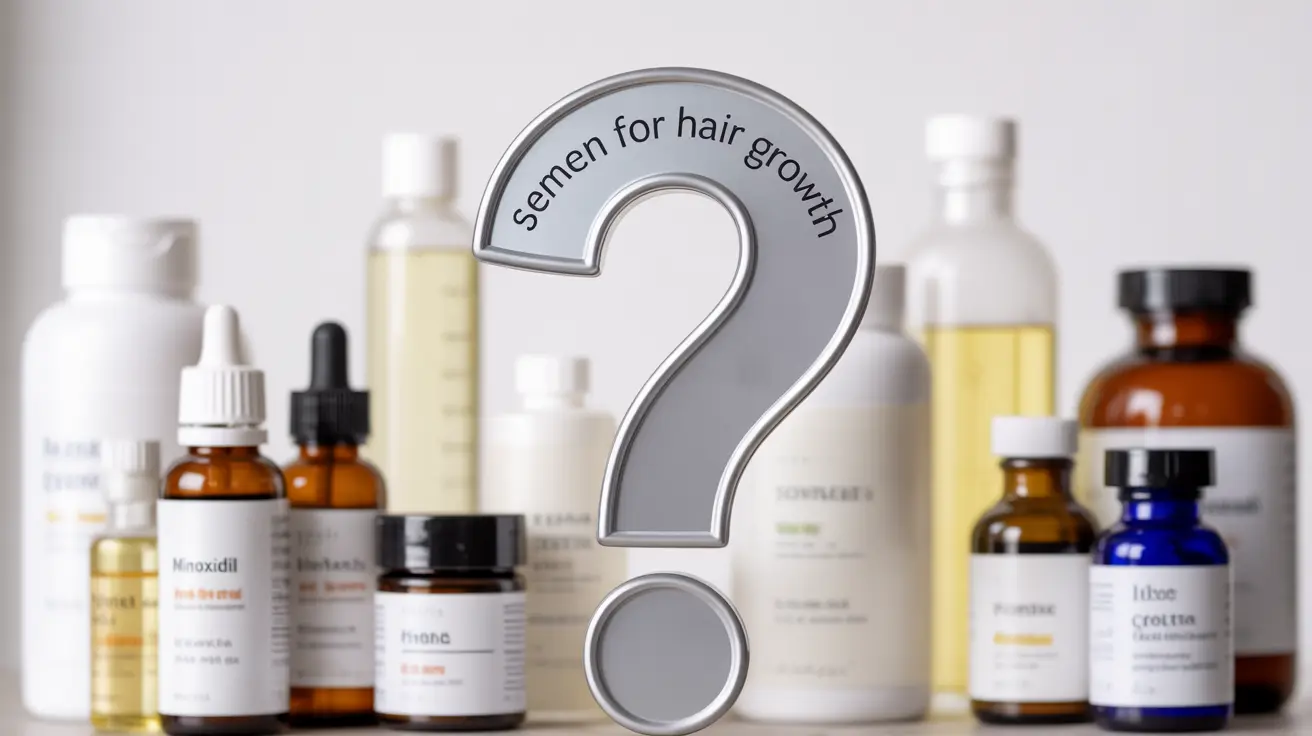The idea that semen might promote hair growth has gained attention on social media and in beauty forums. While this claim has sparked curiosity, it's essential to examine the scientific evidence, potential risks, and separate fact from fiction regarding this unconventional hair treatment practice.
This article will explore the composition of semen, evaluate any potential benefits for hair health, discuss associated risks, and provide evidence-based alternatives for promoting healthy hair growth.
Understanding Semen Composition and Hair Health Claims
Semen contains various compounds, including proteins, enzymes, vitamins, and minerals. One particular compound, spermidine, has attracted attention due to its potential connection to cell growth. However, the presence of these components doesn't automatically translate to benefits when applied topically to hair.
Key Components in Semen
- Proteins and amino acids
- Vitamins B12 and C
- Minerals like zinc and magnesium
- Spermidine and other polyamines
- Prostaglandins
Scientific Evidence and Research
Currently, there is no scientific evidence supporting the use of semen as a hair treatment. While some components found in semen, such as proteins and minerals, are beneficial for hair health when obtained through proper nutrition, their effectiveness through topical application of semen has not been demonstrated in any peer-reviewed studies.
Health Risks and Safety Concerns
Applying semen to hair and scalp poses several significant health risks:
- Risk of sexually transmitted infections (STIs)
- Potential allergic reactions
- Bacterial growth and scalp infections
- Unpleasant odor and hygiene issues
- Possible skin irritation and inflammation
Safe Alternatives for Hair Growth
Scientifically Proven Methods
Instead of experimenting with unproven and potentially dangerous treatments, consider these evidence-based approaches to promote hair health:
- Minoxidil treatments
- Professional scalp treatments
- Balanced diet rich in vitamins and minerals
- Gentle hair care practices
- FDA-approved hair growth medications
Natural Alternatives
For those seeking natural solutions, these options are both safer and more effective:
- Essential oils like rosemary and peppermint
- Scalp massage
- Biotin supplements
- Natural hair masks using proven ingredients
- Adequate protein intake through diet
Frequently Asked Questions
Does applying semen to hair really help with hair growth or thickness?
There is no scientific evidence supporting the use of semen for hair growth or thickness. While semen contains some nutrients, there's no proof these provide any benefit when applied topically to hair.
What nutrients are in semen, and can they benefit hair health when applied topically?
While semen contains proteins, vitamins, and minerals, these nutrients are not in forms that can be effectively absorbed through the scalp. The benefits of these nutrients for hair health are better obtained through proper nutrition and proven hair care products.
Are there any scientific studies supporting the use of semen for improving hair or scalp condition?
No peer-reviewed scientific studies have demonstrated any benefits of using semen for hair or scalp health. Claims about its effectiveness are largely anecdotal and not supported by research.
What are the potential health risks of putting semen on hair or skin?
Applying semen to hair or skin carries significant risks, including potential transmission of STIs, bacterial infections, allergic reactions, and scalp irritation. These risks far outweigh any theoretical benefits.
Is spermidine in semen effective for hair growth, and are there safer alternatives to obtain its benefits?
While spermidine has shown promise in some hair growth studies, the amount and form found in semen is not proven effective for topical use. Safer alternatives include spermidine supplements, proper nutrition, and FDA-approved hair growth treatments.




